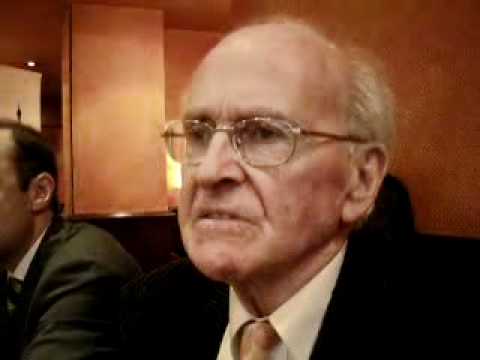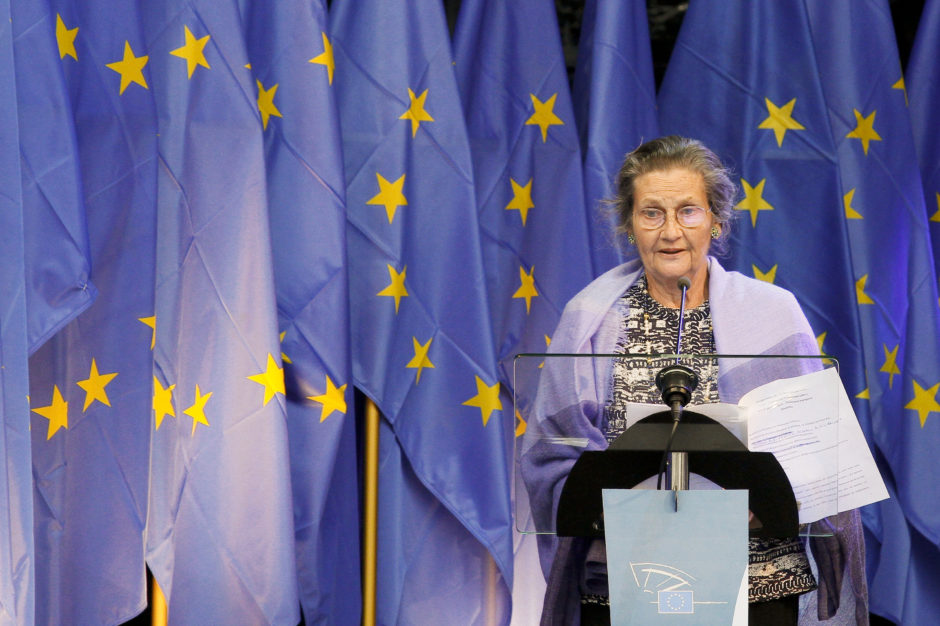Simone Veil, one of the greatest figures in modern France, died recently in Paris at the age of 89. Some years ago, I had the good fortune of interviewing her. This is what I wrote:
There is no other political figure in Europe like Simone Veil. One of France’s first female cabinet ministers, and the past president of the European Parliament, she is a Holocaust survivor whose left arm is tattooed with the telltale blue numerals of a former concentration camp inmate.
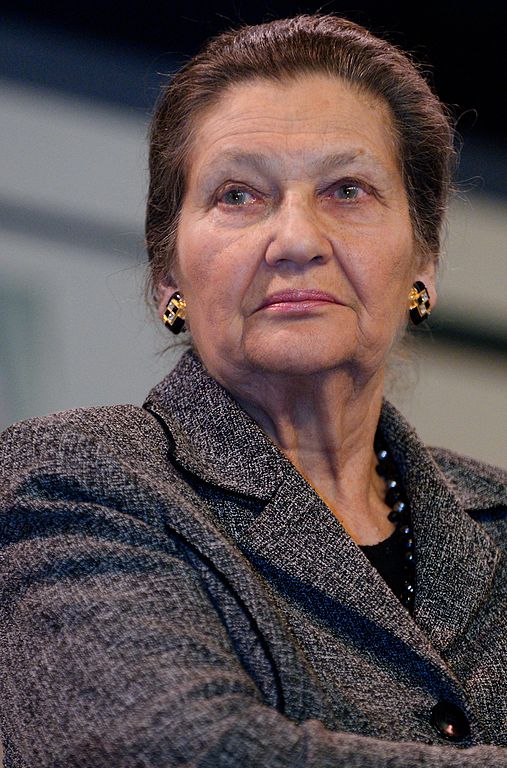
When I asked to see her tattoo, she rolled up her sleeve and, in a monotone voice, said, “7860051.” It was branded on her arm in Auschwitz-Birkenau, where she arrived in April 1944, along with her mother and older sister Madeleine.
Pausing momentarily, she mused, “It’s a number I will never forget.”
Virtually the sole member of her family to survive the horrors of the war and the Holocaust, Veil was profoundly affected by her experiences. When she assumed the presidency of the European Parliament in 1979, she declared, “I am placing my hope in Europe, in a Europe that has overcome hatred and barbarism to commit itself to achieving peace and solidarity between the peoples of Europe.”
European unity is still her pet cause.
“I’m a European activist,” said Veil, now a member of the Constitutional Council of France, which vets laws to ensure they are constitutionally sound. “Without a European Parliament, we may have had more conflicts. But we have to remain vigilant.”
Veil, a reserved person who answered my questions in a melange of French and English, was making a veiled reference to the spate of violent antisemitic incidents that have wracked France since the outbreak of the second Palestinian uprising in September 2000.
France has adopted “very drastic” measures to deal with this phenomenon, she said. “Everyone is grateful to the government for what it has done. Jews in France have a future. You find them in all sectors of society. My grandchildren go to school in Paris, and they have no problems at all.”
She believes that the threat to Jews comes not from the far right but from the extreme left and supporters of the Palestinians.
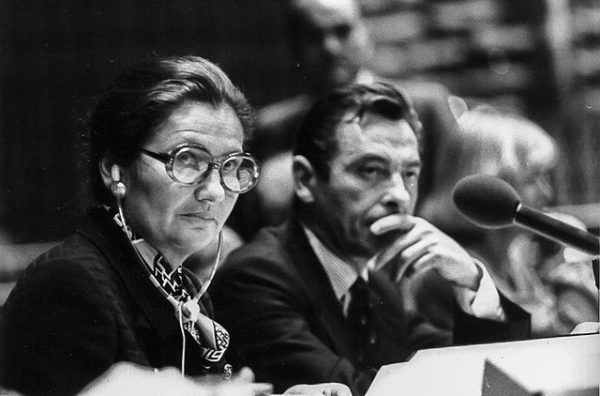
“I am very nervous and worried about this,” she said, adding she is also concerned about the pro-Palestinian stance of French Jewish intellectuals. Endorsing the consensus of Jewish community organizations, Veil suggested that young men of Arab origin have been largely the perpetrators of antisemitic acts. But she also noted that French Muslims are far more often the victims of discrimination than Jews.
When I asked her whether her political career has been affected by antisemitism, she replied that the far right attacked her when, as minister of health from 1974 to 1979, she legalized abortion and made access to contraception devices easier.
“It was a difficult moment, very difficult,” said Veil, who was interviewed in her office near the busy St. Lazare train station.
She maintains that her reputation was not tarnished by these scathing critiques.
“I’m the most popular politician on France,” said Veil, who was minister of social affairs from 1993 to 1995.
Dominique Moisi, a political commentator who knows Veil, said she’s widely respected for her honesty, competence and humane approach.
Veil studied law and political science before joining the ministry of justice as a civil servant in 1957 and moving up in the ranks as an advisor and magistrate. While at the ministry, she was instrumental in improving living conditions for prisoners and granting illegitimate children equal rights.
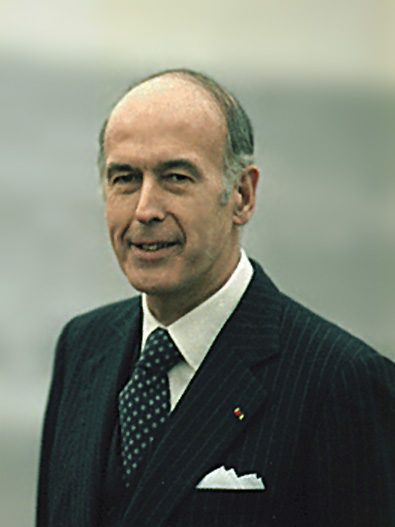
Valery Giscard d’Estaing, the president of France from 1974 to 1981, took notice of Veil and offered her a position in his cabinet as minister of health.
“D’Estaing wanted women in government,” said Morsi. “She hadn’t been involved in politics, but her husband had been active in centre-right politics. She got into politics almost by accident.”
Veil, who has three children, 12 grandchildren and four great-grandchildren, was born in Nice on July 13, 1927 as Simone Jacob. To the best of her knowledge, her ancestors arrived in France before the 1789 French Revolution.
Veil’s father, Andre, was an architect who was banned from working under Vichy France’s anti-Jewish laws. Five months before France was liberated from the Nazi yoke, she and her older sister and mother were deported to Poland.
Her father and 19-year-old brother, Jean, were sent to a Nazi camp in Kaunas, Lithuania, where they perished.
Several years ago, Veil visited Kaunas its an attempt to learn more about their last days. She discovered they were transported to Lithuania on a convoy of 800 Jews, only 15 of whom survived.
Veil’s recollections of Auschwitz-Birkeanau are vivid.
“For the first 48 hours, it was tough going,” she recalled. “There was a lot of bullying and shouting. The people who arrived with us were gassed.”
Asked how she managed to survive, she said, “I was young and strong. I had this will to live. I dug ditches and carried stones. I was always in the company of my mother and sister.”
A Polish kapo, a woman who was hanged by the British after the war as a Nazi collaborator, saved them. “She told me, ‘You’re too beautiful to die here. I want to do something for you.'”
To this day, she vividly remembers the suffering, the exhaustion, the hunger and the cold she endured in the camp. But what really haunts her is her memory of the doomed Hungarian Jews who were abruptly separated on arrival and immediately dispatched to the gas chambers. “We were the terrified witnesses,” she said.
Before the Red Army liberated Auschwitz-Birkenau on January 27, 1945, Veil and her mother and sister were marched 70 kilometres in the snow to Bergen-Belsen. There, amid ghastly conditions, her mother succumbed to typhus, a disease that affected her as well.
In April of that year, Veil was freed by the British army. “We uttered no cries of joy,” she said. “There was only silence, then tears of emotion and sadness. We dared not believe, even at the very end, that our executioners had not succeeded in killing us or in erasing all traces of their crime.”
Shortly after her liberation, she married Antoine Veil, an economist.
In 1953, she was devastated by the deaths of her sister, a psychologist, and her 15-month-old son in a car accident. “For me, this was even worse than the death of my mother,” she said, her eyes misting over, her voice growing weak. “My sister was happy with this child. It was terrible. We were very close.”
Veil, who holds honorary degrees from the Weizmann Institute, Bar-Ilan University and the Hebrew University, heads the Foundation for the Memory of the Shoah. It was established by the French government in 1999 and is now one of the largest charitable organizations in France.
Capitalized by funds expropriated from French Jews murdered during the war, its mandate is to disseminate information about the Holocaust, encourage and fund research on it and raise awareness of racial prejudice.
Veil seems unconcerned by Holocaust deniers like Robert Faurisson, a French national. “He has little impact and no influence,” she said dismissively.
